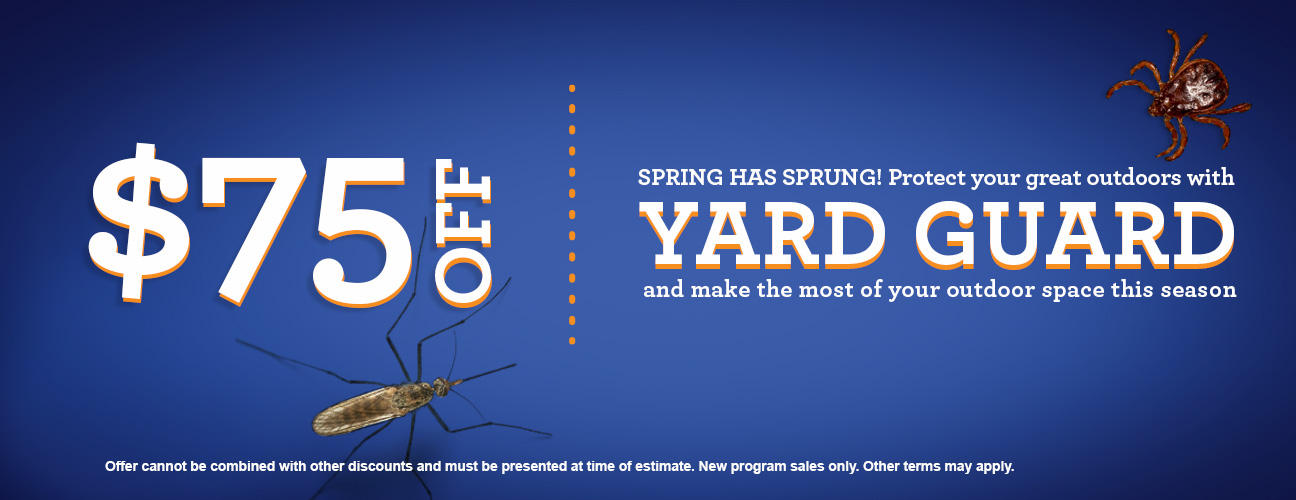Pest Identification
A Pest-Free Life Is on the Horizon
Pest Identification
Common New Jersey Pests
At Horizon Pest Control, our team is committed to helping you enjoy a pest-free life. Since 1970, we have delivered top-quality pest control service to residential and commercial properties of all sizes. Each and every member of our team is fully licensed and highly experienced. With decades of service experience under our belts, you can trust that we have the tools, training, and expertise necessary for proper identification of any pest on your property. Below we have compiled a list of the most common pests in New Jersey.
For more information about our pest control services, call (201) 447-2530.
Ants
Each summer, it seems ants charge full speed towards our homes in search of a food source. Even the smallest crumb or spilled drink can attract an entire swarm in no time. Of the nearly 12,000 known varieties of ants, most of them can be classified as omnivores, which means they will eat just about anything they can get into in your home. With up to millions of different workers in each colony, ant control is best left to the professionals. Our experts can quickly identify the type of ant in your home, locate the colony, and apply an effective treatment.
-
Monomorphic Workers:
-
Acrobat Ants: 1/16 - 1/8 in.Acrobat Ants: 1/16 - 1/8 in.
-
Odorous House Ants: 1/16 - 1/8 in.Odorous House Ants: 1/16 - 1/8 in.
-
Pavement Ants: 1/16 - 1/8 in.Pavement Ants: 1/16 - 1/8 in.
-
Pharaoh Ants: 1/16 in.Pharaoh Ants: 1/16 in.
-
Little Black Ants: 1/16 in.Little Black Ants: 1/16 in.
-
Polymorphic Workers:
-
Carpenter Ants: 1/8 - ½ in.Carpenter Ants: 1/8 - ½ in.
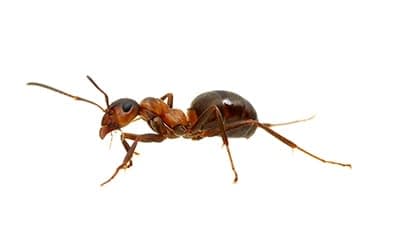
Occasional Invaders
Occasional invaders are various types of pests that tend to infest homes at specific times of the year in an attempt to escape certain weather conditions. These pests actually prefer to stay outside but find themselves entering a home as a means of survival. While these pests tend to enter a structure in large numbers, they aren’t typically dangerous and don’t cause structural damage. They prefer to hide out in dark or moist areas or in areas such as bathrooms, basements, crawl spaces, showers, bathtubs, kitchen cabinets, and underneath sinks. Because they travel in large groups, getting rid of these pests can be difficult. Luckily, Horizon Pest Control is here to make it easy.
-
Centipedes: 1 – 1 ½ in.Centipedes: 1 – 1 ½ in.
-
Earwigs: ¼ - 1 in.Earwigs: ¼ - 1 in.
-
Firebrats: ½ in.Firebrats: ½ in.
-
Ground Beetles: 1/16 – 1 3/8 in.Ground Beetles: 1/16 – 1 3/8 in.
-
House Crickets: ¾ - 7/8 in.House Crickets: ¾ - 7/8 in.
-
Millipedes: 1/41 in.Millipedes: 1/41 in.
-
Clover/Spider Mites: 1/64 in.Clover/Spider Mites: 1/64 in.
-
Pill Bugs: ¼ - 5/8 in.Pill Bugs: ¼ - 5/8 in.
-
Silverfish: ¼ - ¾ in.Silverfish: ¼ - ¾ in.
-
Springtails: 1/32 – 1/8 in.Springtails: 1/32 – 1/8 in.
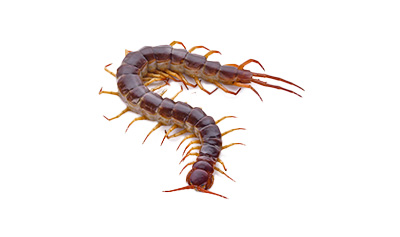
Stinging Insects
Stinging insects, such as wasps and bees, are very common summertime pests. They are most often seen in the late summer and early fall as they scramble to gather enough food to get them through the winter. While these pests are very beneficial, they are also responsible for sending hundreds of thousands of people to the emergency room each year. If a stinging insect has built a nest very close to or attached to your home, you need Horizon Pest Control. Our team knows how to protect your home by quickly identifying these pests and safely removing their nests.
-
Carpenter Bees: ½ - 1 in.Carpenter Bees: ½ - 1 in.
-
Cicada Killer Bees: 1 – 1 5/8 in.Cicada Killer Bees: 1 – 1 5/8 in.
-
Ground/Mining Bees: 1/8 – ¾ in.Ground/Mining Bees: 1/8 – ¾ in.
-
Honey Bees: ½ - 1 in.Honey Bees: ½ - 1 in.
-
Hornets: 5/8 – ¾ in.Hornets: 5/8 – ¾ in.
-
Mud Daubers: ½ - 5/8 in.Mud Daubers: ½ - 5/8 in.
-
Wasps: ½ - 5/8 in.Wasps: ½ - 5/8 in.
-
Yellow Jackets: 3/8 – 5/8 in.Yellow Jackets: 3/8 – 5/8 in.
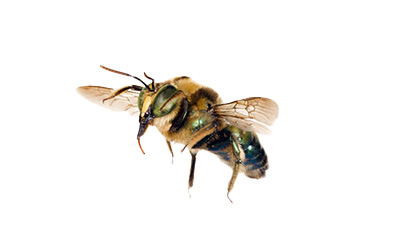
Rodents
Found in crawlspaces, attics, walls, and garages, rodents are some of the sneakiest and most difficult pests to treat. Mice, rats, and other rodents are known for carrying and transmitting various strains of viruses, diseases, and bacteria through their urine and droppings. They are also known to chew up wires, paper products, and the structure of a home in order to gather materials for their nests. Most rodents prefer to feed on plant foods such as seeds and small fruits, but rats and mice are omnivores, which means they will eat just about anything. Because these pests are so destructive and harmful, it is best to seek professional assistance for treatment.
-
House MouseHouse Mouse
-
Deer MouseDeer Mouse
-
Norway RatNorway Rat
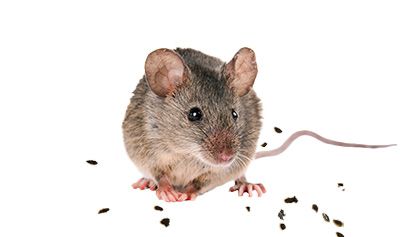
Eastern Subterranean Termites
With colonies ranging from 20,000 to 5,000,000 workers, eastern subterranean termites are some of the most common and destructive pests in America. These pests cause billions of dollars’ worth of damage each year by quickly eating through the structures of homes, books, wooden fixtures, and more. Our team knows exactly how to identify and treat workers, soldiers, and reproductive eastern subterranean termites.
-
WorkersWorkers
-
SoldiersSoldiers
-
ReproductivesReproductives
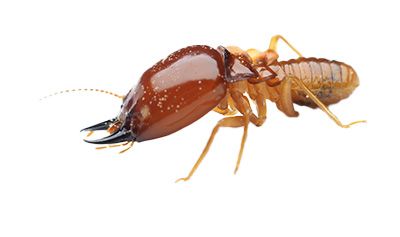
Pantry Pests
Also known as “stored product pests,” pantry pests are known to feed off dried and processed food products stored in homes. They both live in and thrive off of food commonly kept in your kitchen such as flour, pasta, cereal, bread, seeds, dried nuts, pet food, dried fruits, and more. While these pests tend not to transmit diseases, the risk of spoiled food and infestation is too high to ignore them. Luckily, our team is familiar with all of the most common pantry pests, such as beetles, and can effectively flush them out of your NJ home and before you have a major infestation on your hands.
-
Drug Store Beetles: 1/16 – 1/8 in.Drug Store Beetles: 1/16 – 1/8 in.
-
Cigarette Beetles: 1/16 – 1/8 in.Cigarette Beetles: 1/16 – 1/8 in.
-
Grain Beetles: 1/16 – 1/8 in.Grain Beetles: 1/16 – 1/8 in.
-
Merchant Beetles: 1/8 in.Merchant Beetles: 1/8 in.
-
Saw-toothed Grain Beetles: 1/8 in.Saw-toothed Grain Beetles: 1/8 in.
-
Weevils: 1/16 – ¼ in.Weevils: 1/16 – ¼ in.
-
Indian Meal Moths: 5/8 – ¾ in.Indian Meal Moths: 5/8 – ¾ in.
-
Mediterranean Flour Moths: 5/8 – ¾ in.Mediterranean Flour Moths: 5/8 – ¾ in.
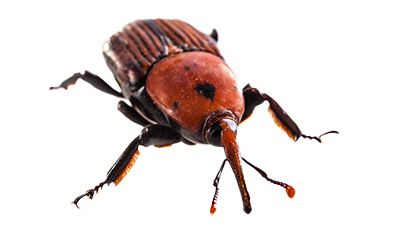
Blood Feeders
Pests that survive off of human or animal blood are known as “blood feeders.” These pests can be incredibly harmful as they are known for carrying and transmitting dangerous diseases, viruses, and bacteria such as Lyme disease, Rocky Mountain spotted fever, Zika virus, Yellow fever, and more. These pests usually latch onto their animal or human hosts outdoors, which is how they make their way indoors. They hide away in carpets, couches, bedding, curtains, animal beds, and other areas in your home. For help properly identifying and treating blood feeders, Horizon Pest Control is here to help.
-
Fleas
-
Human: 1/8 in.Human: 1/8 in.
-
Dog: 1/8 in.Dog: 1/8 in.
-
Cat: 1/8 in.Cat: 1/8 in.
-
MosquitosMosquitos
-
Ticks
-
American Dog Ticks: 3/16 in.American Dog Ticks: 3/16 in.
-
Deer Ticks: 1/8 in.Deer Ticks: 1/8 in.
-
Brown Ticks: 1/8 in.Brown Ticks: 1/8 in.
-
Lone Star Ticks: 1/8 in.Lone Star Ticks: 1/8 in.
-
Bed Bugs: 1/5 in.Bed Bugs: 1/5 in.
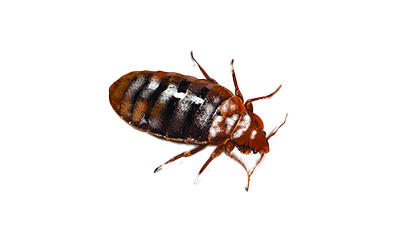
Overwintering Pests
Known for taking shelter during winter to protect themselves against the cold, overwintering pests are commonly found in homes during winter. These pests prefer to be outdoors but must resort to entering structures in order to survive the snow and frost. Most often, they hide away in wall voids and attic spaces until the weather warms up and they are ready to go back outside. If you spot these pests in your kitchen, living room, or any other area in your home, they are most likely trying to find their way back outside. Horizon Pest Control has the top-quality products and advanced equipment necessary to get overwintering pests out of your home.
-
Box Elder Bugs: ½ in.Box Elder Bugs: ½ in.
-
Lady Bugs: 1/32 – 3/8 in.Lady Bugs: 1/32 – 3/8 in.
-
Stink BugsStink Bugs
-
Western Conifer Seed BeetlesWestern Conifer Seed Beetles
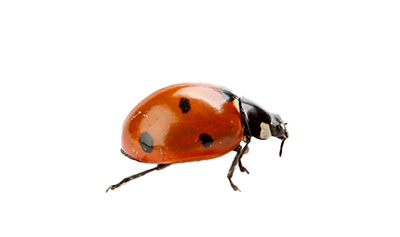
Fabric Pests
Known for feeding on silks, furs, carpeting, upholstered furniture, wool, blankets, rugs, and other fabrics, fabric pests are the last thing you want in your home. While these pests do not transmit diseases, sting, or bite, they can wreak havoc on the fabrics in your home. These pests typically make their way into a home by hitching a ride on items that are already infested. An infestation can be difficult to identify because these pests like to hide away on floors, in closets, in basements, and in other storage areas. Typically, infestations are not discovered until homeowners notice damage to their fabricated items.
-
Webbing Cloth Moths: ½ in.Webbing Cloth Moths: ½ in.
-
Case Making Clothing Moths: 3/8 – ¼ in.Case Making Clothing Moths: 3/8 – ¼ in.
-
Black Carpet Beetles: 1/8 – ¼ in.Black Carpet Beetles: 1/8 – ¼ in.
-
Varied Carpet Beetles: 1/16 -1/8 in.Varied Carpet Beetles: 1/16 -1/8 in.
-
Common Carpet Beetles: 1/16 -1/8 in.Common Carpet Beetles: 1/16 -1/8 in.
-
Furniture Beetles: 1/16 -1/8 in.Furniture Beetles: 1/16 -1/8 in.
-
Longer Cabinet Beetles: 1/16 – 3/16 in.
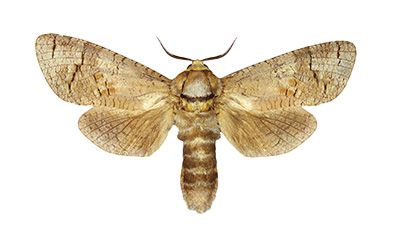
Flies
While we are all aware that flies are one of the most irritating types of pests, many people do not realize that they are actually quite dangerous. Very few types of flies are known to bite or sting, but almost all types of flies are known to spread hundreds of types of harmful pathogens and parasites. They often pick up these pathogens from trash, rotting flesh, and rotting food, and then transfer them anywhere they land. If you are dealing with a frustrating fly infestation, the first step in properly treating it is identifying the type of fly in your home. Our team is here to properly identify and treat your fly infestation.
-
Blow/Bottle Flies: 1/8 – 5/8 in.Blow/Bottle Flies: 1/8 – 5/8 in.
-
Cluster Flies: 3/8 in.Cluster Flies: 3/8 in.
-
Flesh Flies: ¼ - 7/16 in.Flesh Flies: ¼ - 7/16 in.
-
Fruit Flies: 1/8 in.Fruit Flies: 1/8 in.
-
House Flies: 1/8 – ¼ in.House Flies: 1/8 – ¼ in.
-
Drain/Moth Flies: 1/16 – ¼ in.Drain/Moth Flies: 1/16 – ¼ in.
-
Phorid Flies: 1/64 – ¼ in.Phorid Flies: 1/64 – ¼ in.
-
Fungus Flies/Gnats: 1/32 – 7/16 in.Fungus Flies/Gnats: 1/32 – 7/16 in.
-
Midge Flies: 1/32 – 3/8 in.Midge Flies: 1/32 – 3/8 in.
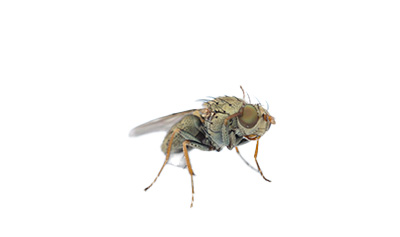
Cockroaches
Known to trigger allergies and asthma attacks, carry bacteria, and transmit disease-causing pathogens, cockroaches are the last pest you want in your home. They are incredibly unhygienic pests that feed on garbage, breed in sewage, and then lay waste throughout your home. Cockroaches prefer to hide away in cool, dark, moist places such as near water heaters, in bathrooms, under flood drains, near sinks, and behind refrigerators. Typically, if you spot a cockroach in your home during the day, this is a sure sign that you’ve got a serious infestation on your hands. Reach out to our team for proper identification and treatment of these dreaded pests.
-
American Roaches: 1 3/8 – 2 1/8 in.American Roaches: 1 3/8 – 2 1/8 in.
-
Brown Banded Roaches: 1/2 in.Brown Banded Roaches: 1/2 in.
-
German Roaches: ½ - 5/8 in.German Roaches: ½ - 5/8 in.
-
Oriental Roaches: 1 – 1 ¼ in.Oriental Roaches: 1 – 1 ¼ in.
-
Pennsylvania Wood Roaches: 7/8 – 1 1/8 in.Pennsylvania Wood Roaches: 7/8 – 1 1/8 in.
-
Smoky Brown Roaches: 1 – 1 ¼ in.Smoky Brown Roaches: 1 – 1 ¼ in.
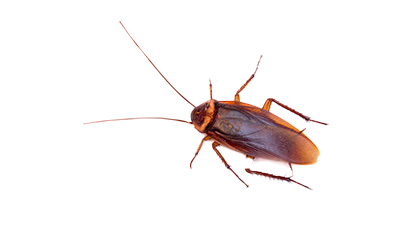
Spotted Lanternflies
Spotted Lanternflies are an invasive species that is native to much of east Asia, including China, India and Vietnam. It was discovered in Berks County, Pennsylvania in 2014, and the invasion has spread to other counties in the state, as well as to New Jersey, Delaware, Virginia, West Virginia, New York, Connecticut, Ohio, and Maryland. The name “fly” typically insinuates small size, but these bugs are not small, and their impact is also proportionally large.
These pests get their name from the distinct black spots on their wings, giving them somewhat of an appearance like a Dalmatian dog. However, they don’t use these wings all that often, as they prefer to jump rather than fly. When extended, these wings have a very unique color combination of pale, red, and even yellow. However, when folded, all that is generally visible is the pale white color. They average roughly an inch in length as an adult.
Spotted Lanternflies are a known nuisance to our environment, and they greatly impact crops and hardwood trees. As the New Jersey Department of Agriculture puts it: they “have a strong preference for economically important plants and the feeding damage significantly stresses plants, which can lead to decreased health and potentially death.” To be more precise, Spotted Lanternflies feed on plant sap found in grapevines, maples, black walnut trees, and other important plants found throughout the region. They are known for swarming, and a swarm can devastate a large swath of land in a short period of time.
For assistance with a pest problem, reach out to our team today. Call (201) 447-2530.


